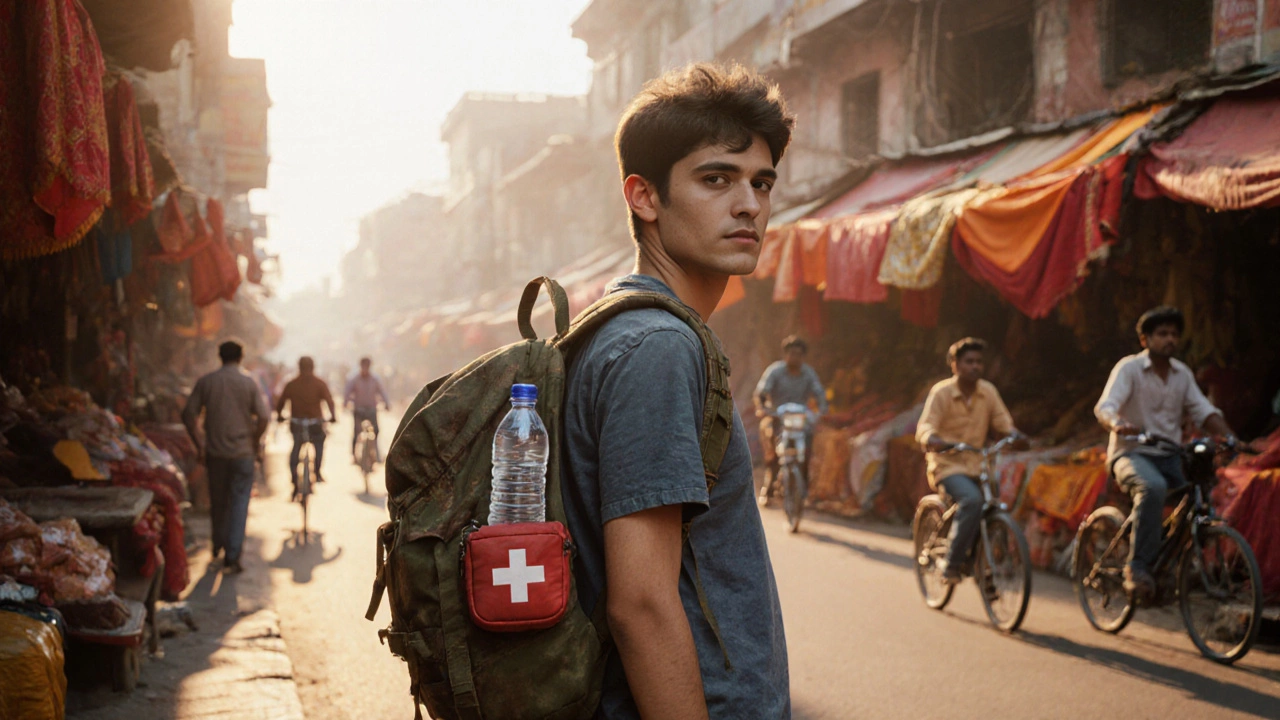Health Tips for Traveling in India: Stay Safe and Feel Great
When you’re exploring India’s jungles, temples, and mountains, your health, your physical well-being during travel isn’t just about avoiding sickness—it’s about staying strong enough to enjoy every moment. Whether you’re trekking the Himalayas, eating street food in Mumbai, or visiting a temple in Varanasi, small health choices make a big difference. Good health tips for India aren’t about fear—they’re about smart, simple habits that let you dive in without worry.
You can’t talk about travel health in India, the practical steps travelers take to stay healthy while visiting without mentioning food and water. Many travelers worry about getting sick, but the truth is, you can eat amazing street food safely if you know what to look for. Stick to busy stalls, avoid raw salads, drink sealed bottled water, and skip ice unless you’re sure it’s made from purified water. vaccinations for India, the immunizations recommended or required before visiting are another key piece. You don’t need every shot under the sun—just the essentials like typhoid, hepatitis A, and routine boosters. Talk to your doctor 4–6 weeks before you go. And if you’re on a budget, many clinics offer affordable packages just for travelers.
Then there’s the cultural side of staying healthy. temple etiquette, the customs and behaviors expected when visiting religious sites in India isn’t just about respect—it’s about hygiene too. Many temples require you to remove shoes, wash your feet, or cover your head. These rules exist for a reason: they help keep sacred spaces clean and reduce the spread of germs. Dressing modestly isn’t just polite—it keeps you cool, protected from the sun, and away from insect bites in crowded areas. And don’t forget about sun protection, hand sanitizer, and carrying a small first-aid kit with rehydration salts and antidiarrheal medicine. These aren’t luxuries—they’re your daily armor.
India’s wild places are full of life, but they also bring unique health challenges. A guide might warn you about leeches on a trek, or a local might tell you not to drink from mountain streams. These aren’t myths—they’re real advice passed down by people who know the land. Listening to them, staying hydrated, and knowing your limits can turn a risky trip into a smooth one. You don’t need to be a doctor to travel safely here. You just need to be smart, prepared, and a little curious about how things work.
Below, you’ll find real traveler stories and practical guides that cover everything from what to eat to which vaccines actually matter. No fluff. No guesswork. Just what works.
